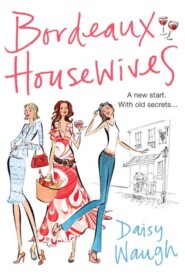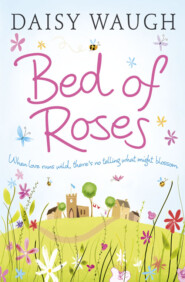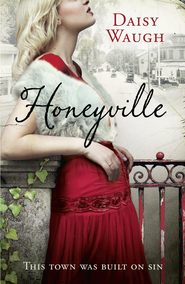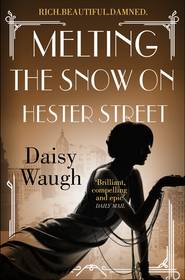По всем вопросам обращайтесь на: info@litportal.ru
(©) 2003-2024.
✖
Last Dance with Valentino
Автор
Год написания книги
2018
Настройки чтения
Размер шрифта
Высота строк
Поля
Dear God, this heat! This sticky, dirty, airless warmth. So much is different since I left the city all those years ago, but the New York summers don’t change. They remind me of August at Roslyn. It reminds of everything I would most like to forget.
I am writing this in a wretched little café just a couple of blocks from my own flophouse . . . Oh, and what a come-down it is! The Ambassador Hotel has its own air-cooling system – of course. As one might expect of such an ultra fine and modern hotel. It lent Rudy and me a magic, secret climate of our own, up there in our private paradise. I had forgotten what the rest of Manhattan was enduring. – Not that I care! Nothing in the world could bring me down tonight—
Ah! The little dooge has come with my eggs at last. I thought I might die from hunger . . . devilled eggs and buttered toast . . . I never saw a more welcome sight! And more coffee, too. And I have asked him to bring me a large slice of chocolate cake and some fruit Jell-O. And some ginger ale and some vanilla ice cream. And more toast. Good God, I’m so hungry I could swallow the whole of it in a single mouthful then order it all again – except I’m not sure I have enough money in my purse.
Is he thinking of me?
Is he thinking of me now?
But if I continue along those lines I shan’t be able to eat a thing, and it’s hopeless, because I must or I shall probably faint in this dreadful heat. I’ve hardly eaten for days. It would be too horribly embarrassing.
I must keep writing. About the beginning – when Papa was still here, and it was only the two of us, thrown together on that great big ship, setting off to start our new life together.
It’s strange. I’ve not dwelled – purposely not dwelled – on the beginning, not for all these years, and yet suddenly, tonight, it comes to me in a rush, as vivid as yesterday. I remember what I was wearing – the little shirtwaist with the embroidered daisies at the buttonhole . . . I remember that, and how splendid I felt in it. I remember the feel of my new rabbit-skin stole, too hot for the day, but which I wore because Papa had only given it me the day before, when I was crying because we were leaving our home. (And I’m convinced, by the way, that he had always intended to give it to another girl entirely. He looked quite rueful as he handed it over.)
I remember what Papa was wearing, too. He was a handsome man: tall and slim and athletic-looking, with eyes of dark blue and thick, golden-brown hair – speckled grey, by then, I suppose, but always golden brown in my memory. I’ve said he was a handsome man: perhaps it’s an immodest moment to observe that he and I looked rather alike. We have the same colouring and similar build. The same nose – it looks better on a man – straight and long; the same square, determined jaw; the same dark blue eyes and angular face.
He was elegant – always. I remember the jaunty angle of his boater hat, and the familiar hint of his cologne as we stood side by side on that vast deck, and the smell of the crumpled pink azalea in his lapel. He had taken it from Chelsea at the crack of dawn that same morning, just as we were leaving our rented cottage for the last time – plucked it, with that roguish laugh, from the front garden of Mr Brampton next door. It was an act of half-hearted defiance, of course, of playfulness and sentimentality, which was somehow typical of my father. My wonderful, magical, wicked, feckless, faithless father. I miss him. God, I miss him still.
– – –
So, our vast ship slipped away from England and the war, and five days followed, surrounded by sea: long, strange, empty days they were; and while my father drank, and charmed our fellow passengers with his usual elegance and wit, I talked too much – couldn’t stop myself – and mostly sent them scurrying away.
The sixth morning dawned at last, not a moment too soon: Papa and I were setting each other on edge. I could feel his impatience – the suffocating coat of boredom that wrapped every word when he addressed me. And there was something else too, perhaps, now that I think about it. He had grown increasingly ill-tempered as the journey progressed. I would glimpse him sometimes, gazing at me as a prisoner might gaze at their jailer, as if culpability for everything – all his torment, all the little irritations of our journey, the sourness of his wine, pain in his toe, the ache in his heart and head – should be laid somehow at my door.
In any case I left him at his breakfast table that final morning, not eating, since he never much ate, mostly muttering to himself about the horridness of all things American. I left him alone and joined the other passengers on deck to catch a first view of land.
Oh! I will never forget it! That first thrilling glimpse of Manhattan – how it rose from the golden haze; glistening with boastfulness in the dawn light – it moved me in a way nothing in old England ever could . . . I had imagined ‘skyscrapers’; Father and I had discussed them at length (he detested the mere notion) but to see them in reality, soaring triumphantly against that pink morning sky, so proud, so ambitious, so completely extraordinary – I had never in my life seen a sight so beautiful. Even today they take my breath away.
My father, when he finally emerged on deck, decreed them ‘hideous’, just as I had known he would: ‘If the good Lord, in his infinite wisdom, had wanted us to live suspended in midair in that undignified fashion,’ he said, scowling across the water, ‘he’d have given us wings.’ After I failed to respond to that, Papa wandered back to his empty dining-table, I think, and I stayed where I was until we docked.
And then what? A blur of everything, I suppose: a whole lot of noise and energy and mad confusion . . . Papa coming to life at last, striding importantly off the ship as if poor, wretched New York couldn’t possibly be expected to survive without him a moment longer . . . And me, left behind again, organising our paltry luggage, coming ashore and searching desperately for him through the crowd.
It was a sweltering morning, and the pier was teeming; a monstrous, roaring jumble – or jungle, it seemed to me – of steam and smoke; motor-cars and carriages, porters, passengers and officials; and the clatter of horses’ hoofs and the spluttering of automobile engines, and above it all, the constant hammer and crash of construction, here and there and everywhere, and far off in the distance, from towering metal skeletons, there were little men, like insects in a spider’s web, riveting together more buildings to add to the madness of that crazy, beautiful skyline . . . So, we stood there, waiting, jostled this way and that: the failed English Portraitist, who drank too much, and the Failure’s daughter; I was mesmerised by the little men in their metal webs – I was mesmerised by it all. But, of course, I was lucky. I was young and – unlike my father – I had never really shone, so could never feel the shock of my insignificance quite as he must have felt it that morning. I think perhaps it frightened him, to feel so utterly, infinitesimally small.
After what felt a long while, with the two of us standing there – dumb and simply staring – I dared to ask my father if perhaps our mysterious benefactor had provided us with an address. Papa began to rifle half-heartedly through the pockets of his linen coat. But he seemed to be on edge. Even more so than before. He kept glancing at me, as if on the point of saying something, only to lose his nerve and fall silent again. Finally I asked him what was the matter. Had he lost the address? Was his friend not likely to come? Did his friend, perhaps, not even exist?
He looked pained.
‘Lola, old girl,’ he said, at last (and I knew at once we were in trouble. He only ever called me ‘old girl’ when he had something dreadful to say). ‘There’s something I’ve been meaning to tell you. The, er . . . that is – the, er . . . As you know—’ Abruptly, he stopped patting his pockets, straightened up and looked at me.
He looked– what did he look? What did you look, Papa, just that instant before? Sorry? . . . Yes, I think so . . . Shamefaced? . . . Gosh, yes. Like an animal caught in a trap. ‘Dear girl,’ he said – boomed, rather, over all the noise. ‘I am not – that is to say, we – we, you and I, are not blessed with a pecuniary – pecuniary . . . How does one put it?’ He took a breath and tried again. ‘The time has come, old girl, now that you’re – we’re – now that we’ve arrived here, adults, and so on . . . The time has come for the two of us to address the perennial deficiency of funds at Ranch Doyle, such ranch that it is . . . Peripatetic ranch . . . and so on. It is, or has been, as you may or may not be aware, a constant struggle for your old papa to keep ahead of things . . . ’
Ahead of things! My poor father! I’m ashamed to say I laughed.
‘It has been a constant struggle to stay ahead of matters. And now that you yourself are a young lady – and a remarkable young lady, I may add – I was rather beginning to think . . . that is to say . . . What I have done . . . Oh, Lord . . . Perhaps I should have mentioned it earlier . . . ’
I began to feel a little sick. ‘Papa, for Heaven’s sake . . . ’ Over all the noise my voice was barely audible even to myself. ‘For Heaven’s sake, tell me – what should you have mentioned earlier?’
‘Only I didn’t feel it would be very pleasant to disrupt our very pleasant journey . . . What I have done, old girl, may take you a little by surprise. But I assure you in the long run it is with your own interests very much in my mind . . . at the forefront of my mind . . . that I have rather taken the matter of the, er, perennial pecuniary deficiency at our albeit rather peripatetic ranch into a new dimension . . . a new chapter, so to speak. That is to say . . . Lola, darling, when my kind friend Mr de Saulles offered to – ship us out here, he very sweetly made a suggestion regarding your own future, which I’m certain – I’m absolutely convinced—’
‘Misster Doyles? Misster Marquis Doyles?’
A strange man was peering down at my father. He was pale and extraordinarily tall, with white-blond hair slicked back from a huge, worried face, and a long chin that curved disconcertingly to one side. He was in his forties, possibly fifties; ageless, actually. And he was frowning – that eyebrowless frown with which I would grow so familiar.
There weren’t many who could peer down at Papa. Justin Hademak, the crazy Swede, must have been six and a half foot or more. He was a giant. ‘Misster Doyles?’ he repeated. ‘Iss it you?’
‘Aha!’ exclaimed my father, joyously, noticing him at last. ‘Saved by the bell. So to speak.’
‘You are Mr Doyles?’
‘Marcus Doyle. At your service. Jolly clever of you to spot us. You’re rather late. But no matter.’
‘Of courses.’ The giant bowed his head – it was absurdly formal – and flashed an unlikely smile. ‘I apologise. Unfortunately, at the moment of leaving, the mistress suddenly required the motor-car . . . with utmost urgency ...’
‘Don’t think about it for a second, old chap,’ my amiable father assured him. ‘When a lady requires a motor-car, she requires a motor-car!’
‘I am sent by Mr de Saulles,’ he continued, my father’s charm or humour – or whatever it was – quite lost on him, ‘but I am right to think you are indeed the portrait painter? It is important I locate him correctly. You are the renowned portrait painter from England, coming to America on the appointment of Mr John Longer de Saulles?’
‘I do solemnly declare that I am he,’ said my father. ‘Back me up, Lola, won’t you?’ he stage-whispered to me, above all the racket. ‘I’m not certain he believes me.’
‘And you are the daughter?’ said Mr Hademak.
I nodded.
‘You know, I’m almost certain de Saulles sent me a bit of paper, with all the particulars and so on, and I think he may even have mentioned you . . . a tall gentleman . . . ’ My father was patting his pockets again. ‘ . . . only it seems to have disappeared. Lola, do you suppose I may have given it to you?’
There was no opportunity to reply. Mr Hademak had taken a brief look at our travelling trunk and, in one easy swoop, bent from his freakish height, lifted it onto his shoulders and lurched headlong into the crowd. We had little choice but to end our conversation and follow him.
‘I am to put Mr Doyle into a motor vehicle and send him to Mr de Saulles in the city,’ the man shouted behind him. ‘Mr de Saulles is most impatient to see you again, Mr Doyle. You are to lunch together at Sherry’s, and afterward to join Mrs de Saulles for dinner at The Box . . . And the daughter . . . ’ he glanced back at me, not with any hostility, or with the slightest hint of interest ‘ . . . Mr de Saulles says you are to drive with me to The Box directly. The mistress wants . . . that is to say she doesn’t want . . . ’ He tailed off. ‘You are supposed,’ he tried again, ‘to begin your employment at once.’
‘To begin my . . . ’ I think I may even have laughed. ‘Papa?’ I turned to him. He looked away. ‘My employment . . . as what?’
‘Not quite employment . . . ’ my father muttered sheepishly. ‘Only the poor little chap’s got a Spanish accent, Lola. Y’see . . . That’s the thing. And he’s only four. Or nine. Or something frightful. He terribly needs someone to talk to . . . And then there’s dear Mrs de Saulles, hardly much older than you are, Lola, miles away from her native land and abysmally lonely most of the time. It’ll only be for a couple of months . . . ’
I didn’t say anything. I was too shocked – I had no idea what to say. I remember my silence seemed to annoy him. ‘Really, Jennifer, darling,’ he began to sound slightly peevish, ‘there’s no need to pull that long face. They’re excellent people. My friend Jack de Saulles is . . . top notch. And Mrs de Saulles comes from one of the most spectacular families in Chile. In fact I have a feeling her uncle might even be President. For example. And if he isn’t he certainly ought to be. In any case, darling, even if he isn’t, I don’t think you should complain when I arranged it all so nicely for you . . . Entirely because I was so utterly convinced you would enjoy yourself . . . ’
‘So . . . But we shall be living in different places?’
I could feel him itching to slide away from it all. How he longed for this conversation to be over! ‘Yes and no. That is to say, I shall be in the city mostly, at their apartment. But it’s all part of the same family. And I shall be travelling to see you during the week, of course. Or as often as I can . . . It’s really not far at all from New York. Only an hour or so by the train, Jack tells me . . . In any case it’s hardly up to me, is it?’
It seems ridiculous, I suppose, because I was a grown woman, with a father who was constantly broke, and of course I hadn’t a penny of my own – but it had never passed through my head, never, not even for a moment, that I should play any role during our great American adventure beyond the one I had always played: that is to say, to be hanging about with Papa in a daughterly fashion and occasionally slipping off to fall asleep.
But it was not to be. And why should it have been? No reason. One cannot remain a child for ever. Only I had been his constant companion for as long as I could remember. And the news that we were to separate came as a dreadful shock. I suppose, if I wish anything, I wish he’d had the courage to break the news to me a little earlier, so that I might at least have had time to prepare myself . . . It’s too bad. It doesn’t matter now, in any case. In fact, I am grateful it happened, and not simply because it allowed me to meet Rudy.
However, I was not grateful then. As I stood there on that crazy, bustling, deafening pier, the thought of being apart not just from my home but from the only person in the world I loved, or who loved me, filled me with nothing but a clammy dread. I looked across at Papa – still hoping, I think, that his face might break into one of those wonderful, wicked grins, that he might slap me on the back, as he did sometimes, always much too hard, and laugh, and tell me he was teasing.
But he didn’t look at me. Carefully didn’t look at me, I think. ‘Righty-ho!’ he said. ‘Jolly good. Well, take good care of my little Jennifer, won’t you, Mr . . . Mr . . . ’











